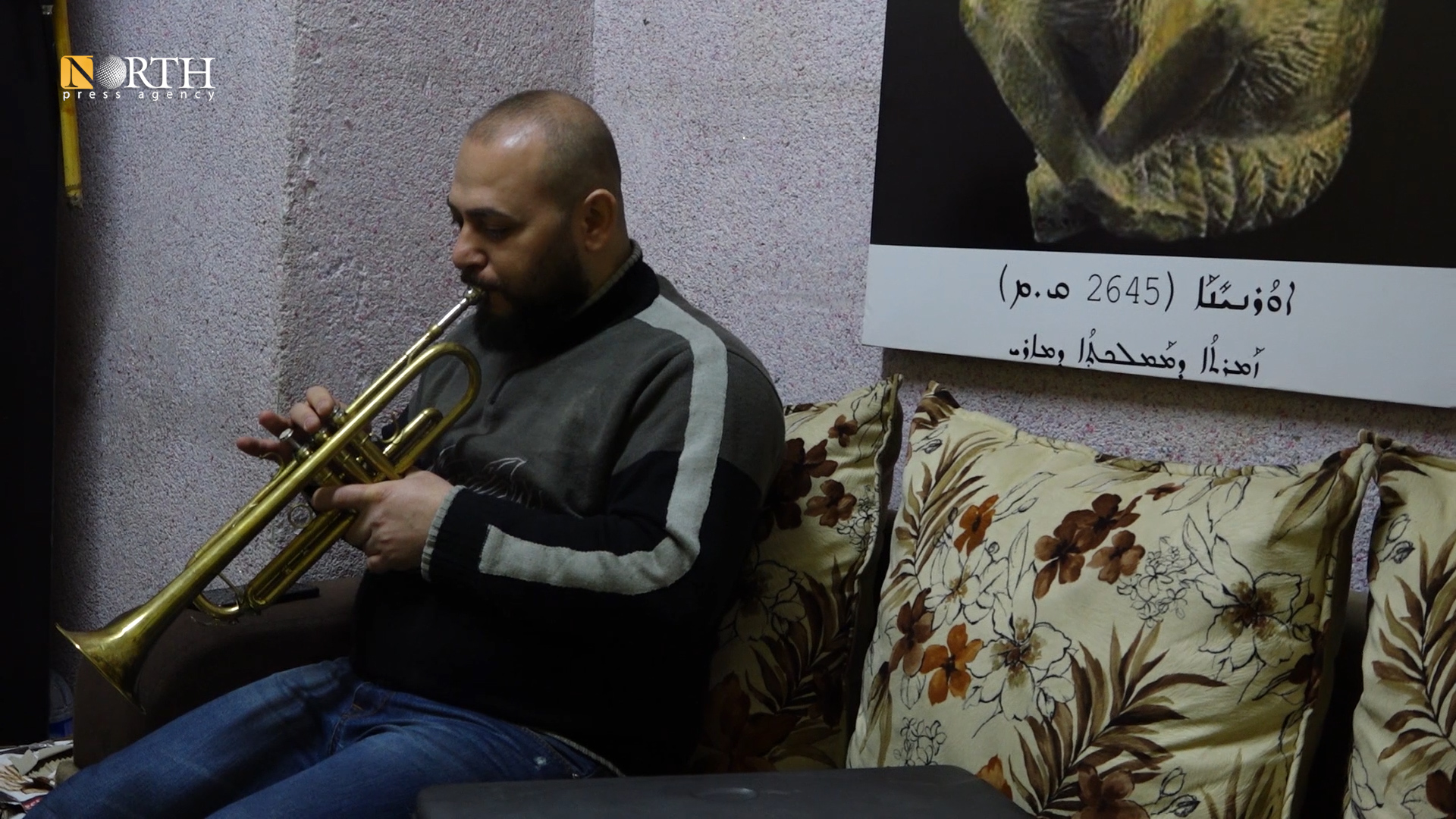QAMISHLI, Syria (North Press) – Northeast Syria’s Jazira Region has been witnessing a decline in Syriac culture since most Syriac artists have emigrated, and new talents resort to diversity in releasing songs.
Despite founding several cultural projects and institutions, singers and talented people are facing several obstacles preventing them from reaching their ambitions.
Financial difficulties
Syriac singer Rabi Moro says that he was not able to record his songs due to several difficulties, the most notable of which was financial.
“The singer has the talent and those who will provide the melody and words; however, he is still facing difficulty in recording and arranging the song and this costs a lot,” Moro told North Press.
Traditional songs have witnessed a decline in the last 15 years, coinciding with the emergence of the commercial art, he added.
Since the 1920s, interest in Syriac music increased in churches and cultural institutions after years of Syriacs being subjected to massacres by the Ottomans.
Syriac songs flourished and witnessed the emergence of several composers and writers such as Gabriel Asa’ad and Danho Deho, Evelyn Daoud, Habib Moussa, and Jan Karat, from the 1960s to the early 21st century.
These singers and others started recording the first Syriac songs in Qamishli in 1965, motivating other singers and talents in the area.
Meanwhile, Syriac religious music and church chants are still very much private affairs, and interest in popular and artistic songs is declining. Singers of popular music often mix original and Western characteristics of Syriac music, which makes them lose their unique qualities, according to Syriac artists.
Training talent
For the past two years, Syriac cultural and artistic institutions, some affiliated with the Autonomous Administration, have tried to revive the interest in Syriac song and art.
“We tried to revive interest in the Syriac art and culture by finding institutions to find new talents in order to be able to complete and save Syriac art,” Jazira Region Culture Board co-chair Mariya Aho said.
“Our board is interested in the artistic field for all communities in the area,” she said.
“We opened special institutions for all communities including Kurds ans Arabs, where we started training in folklore, playing, and music,” she added.
The Culture Board will open a new artistic center in Tirbespi, where “we will record several songs for young talents in the area,” says Aho.

